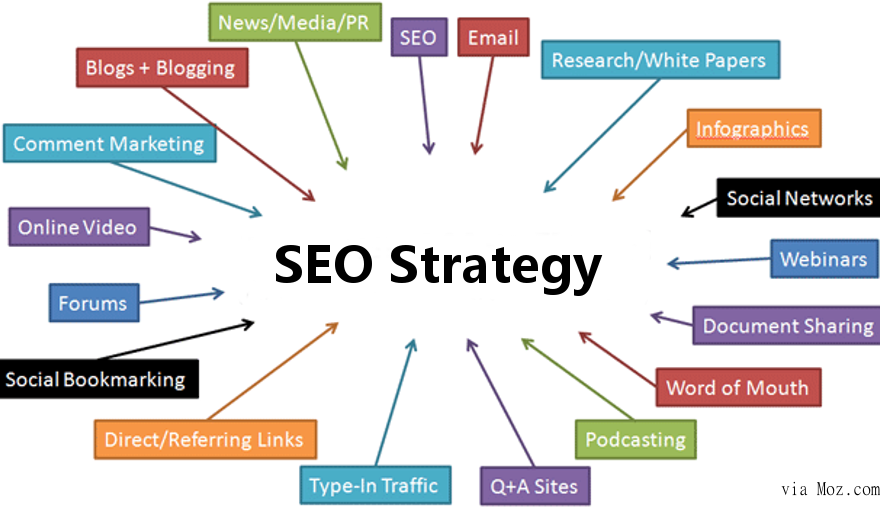Understanding the Importance of SEO in Healthcare
In an era where digital communication rules, the healthcare industry is no exception to the importance of maintaining a solid online presence. Search Engine Optimization, or SEO, plays a significant role in boosting a healthcare provider’s visibility online. Numerous studies have shown that most people turn to search engines like Google when seeking medical advice or trying to find a healthcare provider. Therefore, for healthcare providers to reach more patients and increase their market share, they must adopt effective SEO strategies.
With the rise in home-based care, telemedicine, and online pharmacies, any healthcare provider seeking to stay ahead of the curve needs a robust online presence. SEO is not just about driving traffic to your website but ensuring you attract the right traffic, i.e., patients seeking specific healthcare services. It’s about enhancing the user’s experience by providing relevant, high-quality content that potential patients find valuable.
How SEO is Changing the Healthcare Landscape
In the past, patients relied on referrals or proximity when choosing healthcare providers. However, today’s Internet-savvy patients use search engines to find the best providers based on reputation, services, and patient ratings. This shift has made SEO crucial for healthcare providers.
Moreover, SEO helps healthcare websites provide helpful information, making them a trusted resource. If a patient finds informative content about their health concerns on your website, they’re more likely to book an appointment. Thus, SEO builds the provider’s credibility while fostering patient trust.
The Intersection of SEO and Patient Acquisition
SEO greatly affects how healthcare providers acquire new patients. A well-optimized website ranks higher in search engines, making it more likely for prospective patients to find it. Evidence shows that very few users scroll past the first page of search engine results. Therefore, providers that fail to secure a top-spot search ranking significantly reduce their visibility and accessibility.
| Website’s Page Rank in SERP | Impact on Patient Acquisition |
|---|---|
| First page | High |
| Second page | Moderate |
| Third page or further | Low |

Top 10 SEO Strategies to Gain a Competitive Edge in Healthcare
- Capitalizing on Local SEO
Local SEO is crucial for healthcare providers. Most people seeking medical services prefer providers in their locality. By strategically optimizing your local SEO, you increase your chances of appearing in the ‘near me’ search results.
Benefits of a Google My Business Profile
Google My Business (GMB) is a vital tool for local SEO. By setting up a GMB profile, you provide valuable information about your healthcare practice, including address, operating hours, and services. An optimized GMB profile can improve your search engine ranking and increase your online visibility, driving more traffic to your site.
The Power of Local Reviews
Online reviews significantly influence customers’ decision-making processes. In healthcare, where services can be deeply personal and impact well-being, patient reviews can significantly sway prospective patients’ choices. Encouraging satisfied patients to leave glowing reviews can boost your local SEO and build your practice’s reputation.
- Creating High-Quality, Relevant Content
Content remains a key pillar in SEO strategies. The healthcare industry is built on trust and providing valuable, accurate, and timely health information is paramount. High-quality content not only caters to your existing patients but also attracts visitors searching for health information, thus expanding your patient base.
Understanding EAT (Expertise, Authoritativeness, and Trustworthiness)
The EAT principle, which stands for Expertise, Authoritativeness and Trustworthiness, is a crucial SEO factor. Search engines favor EAT-compliant content in ranking, more so in the healthcare field, recognized as a Your Money Your Life (YMYL) zone. Correspondingly, healthcare providers must establish online authority by routinely publishing detailed, well-researched content from experts. Furthermore, the reliability of the content should be unquestionable to foster trust with your audience and upend the ranking of your site.
The Role of Keyword Research in Crafting Relevant Content
Keyword research is instrumental in SEO. The healthcare industry should focus on terms that potential clients are likely to use when searching for services—both general and specific. By identifying and integrating these keywords into your content, you increase your ranking potential and improve your chances of attracting applicable web traffic.
- Implementing On-Page SEO Techniques
On-page SEO includes the strategic placement of keywords in your content, site layout, and performance optimization. Each aspect works cohesively for search engines to understand your page’s content better and rank it accordingly.
Optimizing Metadata for Better Visibility
Meta tags give search engines a snapshot of your page’s content. These include the title tag, Meta description, and alt tags for images, and are vital for enhancing your web page’s visibility. Crafting enticing titles and descriptions can improve your click-through rates from the search results.
The Impact of Responsive Web Design on SEO
Search engines value user experience and a responsive design offering an enjoyable browsing experience will get favor in the search ranking. With the increasing use of mobile devices to access health information, a mobile-optimized site is no longer an option but a necessity. Also, your website should load quickly and have an easy-to-navigate layout to enhance readers’ experience.
- Building a Strong Backlink Profile
Backlinks are intrinsically linked with SEO success because they denote credibility to search engines. Well-placed, high-quality backlinks give a positive signal to search engines about your site’s trustworthiness and consequently boost your ranking.
The Importance of Reputable Backlinks
The value of a backlink lies in its quality, not quantity. Links from reputable and high-authority healthcare websites signal reliability and trustworthiness of your site to search engines, improving your search rankings. Additionally, such backlinks tend to bring valuable traffic that is more likely to convert.

Gauging the Success of Your Healthcare SEO Strategy
An effective SEO strategy should translate into tangible results. Therefore, monitoring the performance of your strategies is as essential as implementation.
Useful KPIs to Monitor SEO Success
Key Performance Indicators (KPIs) offer insights into the effectiveness of your SEO strategy. These may include organic traffic, bounce rate, time spent on the website, and conversion rate. By examining these metrics, healthcare providers can adjust their SEO strategies for improved performance.
The Role of Ongoing SEO Maintenance and Improvement
SEO is not a one-time effort but requires constant maintenance and evaluation. Algorithms change, and so does user behavior. Keeping abreast with the updates and continuously refining your strategies will keep your website at the top of search engine results and maintain a consistent influx of patients.
Wrap Up: Staying Ahead of the SEO Curve in Healthcare
Today, remaining competitive in the healthcare industry cannot be done without integrating robust SEO strategies. Optimizing your local SEO, creating high-quality content, implementing on-page SEO techniques, and building a strong backlink profile are all part of remaining relevant and visible in this digital age.
Frequently Asked Questions (FAQs)
- Is SEO necessary for healthcare providers? Yes, SEO is a vital part of digital marketing strategy for healthcare providers. It increases visibility, leads to patient acquisition, and enhances patient trust.
- How can healthcare providers benefit from local SEO? Local SEO increases the visibility of healthcare providers to potential clients in their locality. This can significantly enhance the rate of patient acquisition.
- How does high-quality content boost SEO rankings in healthcare? High-quality content enhances the visitor’s experience, and fosters trust. Search engines note these factors and can reward such websites with higher rankings.
- Why is a strong backlink profile important in healthcare SEO? A strong backlink profile boosts your website’s credibility and trustworthiness in the eyes of search engines, thus improving your search rankings.
- How can healthcare providers measure the success of their SEO strategies? Key Performance Indicators (KPIs) like organic traffic, bounce rate, time spent on the website, and conversion rate provide insights into the effectiveness of a provider’s SEO strategy.
